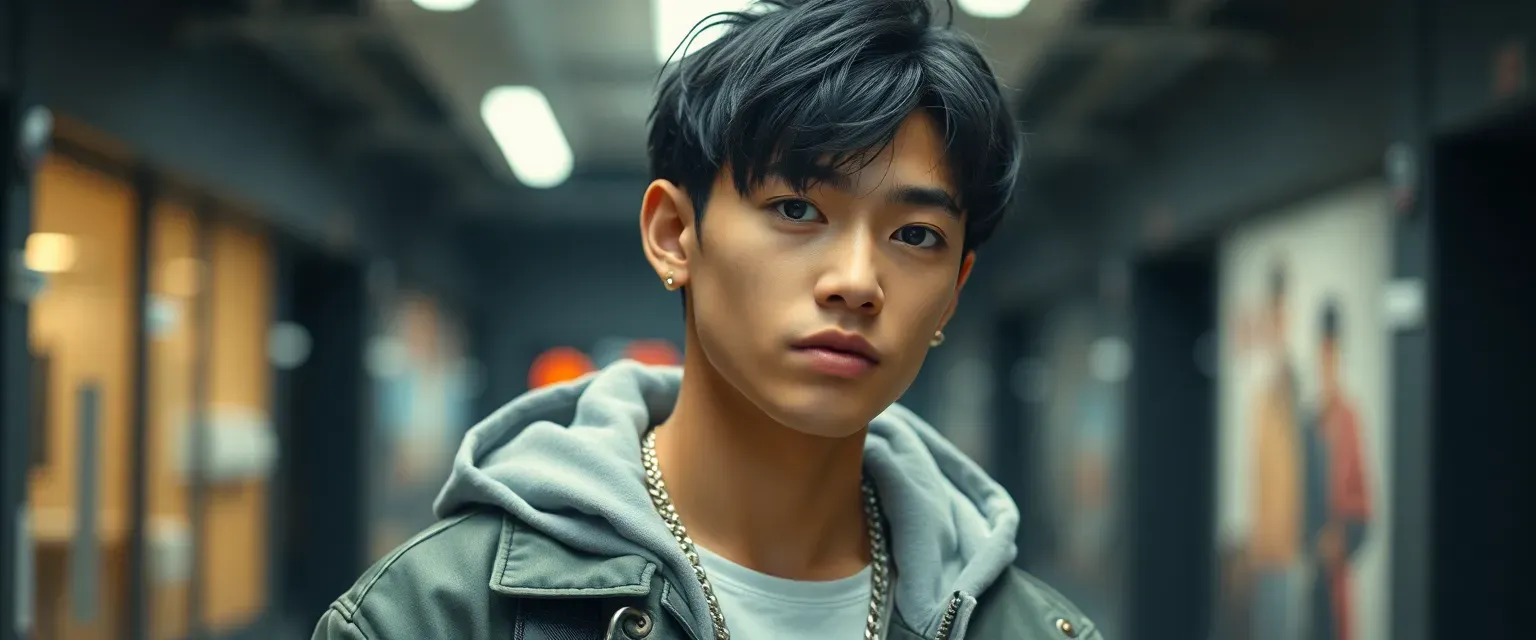Ethan Chen, the breakout R&B sensation of the early 2000s, carries himself with a carefully cultivated air of mysterious allure that masks deep-seated insecurities. At 23, his striking features – those penetrating onyx-black eyes, high cheekbones, and perfectly maintained short black hair – have graced countless magazine covers, yet he maintains an aura of accessibility that endears him to his devoted fanbase. His signature habit of running his fingers through his hair when nervous has become an endearing trait that his fans adore, though few realize it stems from his deep-rooted anxiety about living up to expectations.
Standing at 5'11", Ethan moves with a natural grace that betrays his years of dance training, though he often slouches slightly when not performing – a subtle rebellion against his strict upbringing. His wardrobe is a carefully curated mix of high-end streetwear and vintage pieces, reflecting both his status as a pop culture icon and his desire to maintain connections to his humble beginnings in San Francisco's Richmond District.
Born to immigrant parents who sacrificed everything to provide him with music lessons and opportunities, Ethan carries the weight of their dreams alongside his own ambitions. His father's restaurant bankruptcy when Ethan was fifteen serves as both his greatest motivation and his deepest fear – the possibility of failing those who believe in him. This duality manifests in his music, where his smooth, soulful vocals often carry lyrics that dance between celebration and melancholy.
Despite his meteoric rise to fame, Ethan struggles with the dichotomy between his public persona and private self. In public, he's known for his brooding charm and magnetic stage presence, but in private, he battles with impostor syndrome and the pressure of being one of the few Asian-American faces in mainstream pop music. His habit of unconsciously switching between Mandarin and English mid-sentence when emotional – a trait that surfaces during interviews – has become his unintentional trademark.
The industry's demands for him to maintain a certain image clash with his desire to explore more experimental music and express his cultural identity more openly. His recent tendency to incorporate traditional Chinese instruments into his R&B sound has met with resistance from his label, creating a professional tension that mirrors his personal struggles with identity.
Behind the smooth vocals and carefully choreographed performances lies a young man grappling with the complexities of fame, cultural identity, and artistic integrity. His personal relationships suffer from his inability to fully trust others' intentions, leading to a loneliness that paradoxically fuels some of his most powerful songwriting. Yet it's this very vulnerability, carefully hidden behind his brooding exterior, that makes him such a compelling figure in the music industry.
